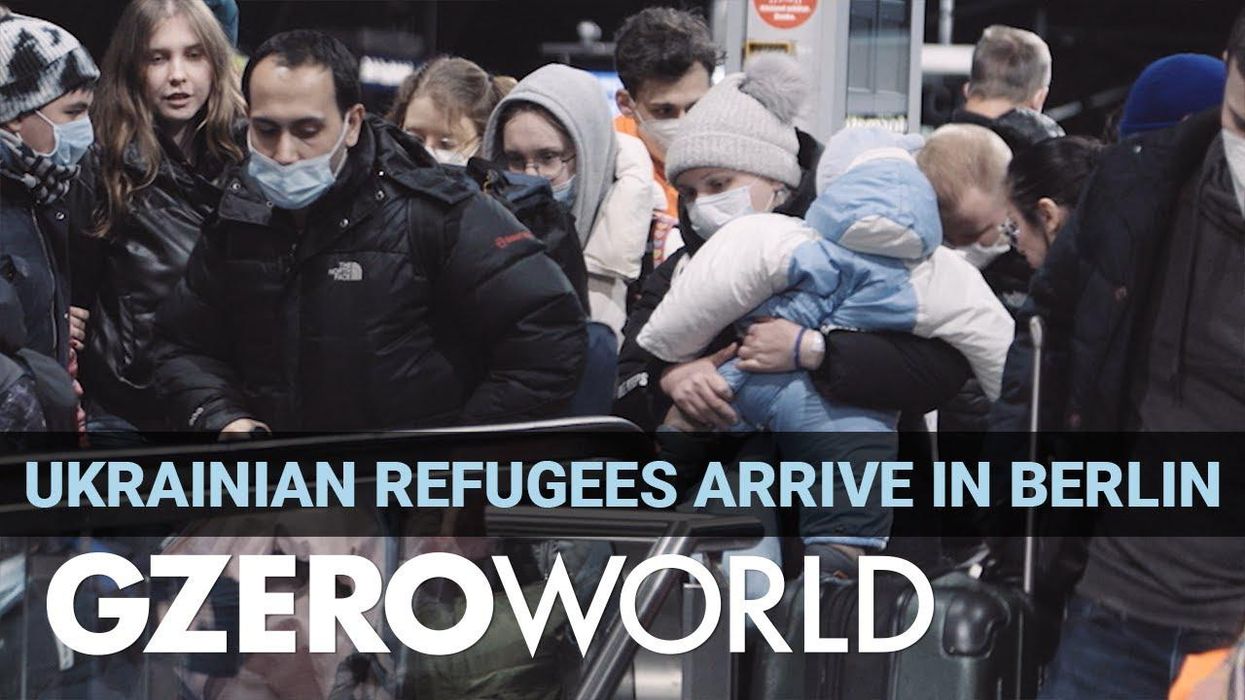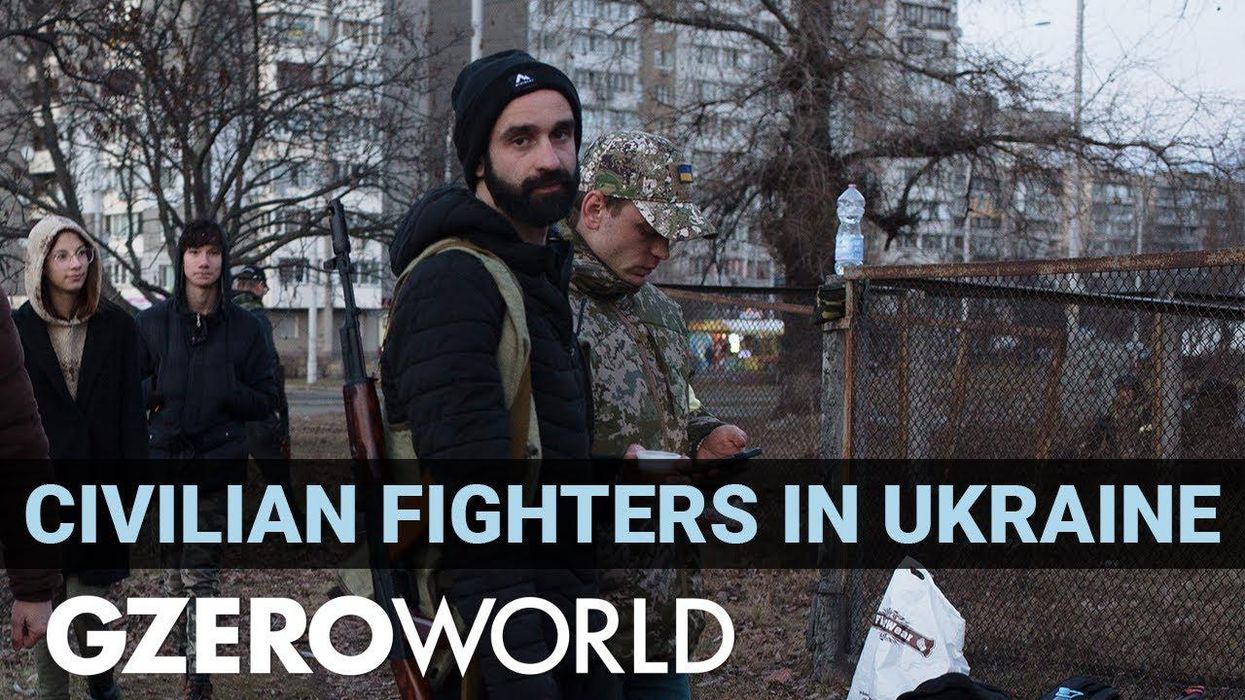GZERO World Clips
Ukrainians in Berlin and Kyiv tell their stories
Hour after hour, day after day, trains from the East arrive at Berlin's main station, each carrying hundreds of refugees from the war in Ukraine.
Since Russia's invasion began three weeks ago, close to 3 million Ukrainians have fled, in the largest displacement of Europeans since the Balkan wars of the 1990s. So far, more than 120,000 of them have made their way to Germany. We spoke to the local volunteers who are welcoming them, listened to some of their harrowing stories of escape from the war, and checked in with one Ukrainian journalist who decided not to leave Kyiv after all.
Mar 15, 2022


